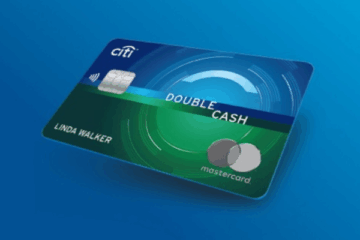How to Build a Positive Credit History
Building a positive credit history is essential for anyone who wants access to financial products with better interest rates and credit conditions.
Advertising
This article takes you step-by-step on how to start and maintain a good credit history, highlighting best practices and effective strategies.
How to Start a Credit History
Advertising
Starting a credit history is like laying the foundation for your financial health. Without credit, it can be difficult to rent an apartment, buy a car, or even get a credit card.
Initial Steps:
- Obtain a Credit Card: If you have no history, a starter credit card or a secured credit card are good options.
- Utilize Financing to Your Advantage: Small bank loans or installment purchases in stores can help kickstart your history.
Best Credit Cards for Beginners

Choosing the right credit card is crucial. A good starter card can set the tone for building an excellent credit score.
Advertising
Recommendations:
- Secured Card: Ideal for those without credit.
- Simple Authorization Cards: Cards that do not require an extensive credit history.
- Store Cards: Often easier to be approved for and useful for building credit.
Responsible Credit Card Use
Responsibly using your credit card involves more than just paying your bills on time.
Responsible Usage Tips:
- Pay in Full: Avoid interest by paying the full balance monthly.
- Keep Credit Utilization Low: Use less than 30% of your credit limit.
- Do Not Apply for Many Cards: Each application can affect your credit score.
How to Monitor Your Credit Score
Keeping an eye on your credit score is essential to understand how financial actions impact your credit.
How to Monitor:
- Use Free Credit Sites: Many websites offer free credit reports and scores.
- Check Your Report Annually: The law entitles you to one free credit report per year from each of the major credit agencies.
Responsibly managing your credit card is essential for maintaining good financial health. This involves more than simply paying your bills on time; it requires strategic planning, consistent monitoring, and informed decisions to optimize your creditworthiness.
To begin with, using your credit card responsibly means understanding the importance of paying your full balance every month. This practice not only helps you avoid interest charges but also demonstrates financial discipline. Another key factor is keeping your credit utilization low—preferably below 30% of your credit limit. High utilization can signal financial strain to lenders and negatively affect your credit score. Additionally, be cautious about applying for multiple credit cards in a short period, as each application can temporarily lower your credit score.
Monitoring your credit score regularly is a critical aspect of credit management. Free tools and resources are available to help you stay informed. Websites offering free credit reports and scores are invaluable, and you are legally entitled to a free credit report annually from each major credit agency. Reviewing these reports allows you to track your financial progress and spot discrepancies that may require attention.
Late payments are one of the most detrimental factors for your credit score. Even a single late payment can significantly lower your score, with records of these missed payments lingering on your credit history for up to seven years. To avoid such setbacks, make timely payments a priority. Should you find errors in your credit report, addressing them promptly is crucial. Start by obtaining a copy of your report, identifying inaccuracies, and filing a formal dispute with the relevant credit agencies to ensure corrections are made.
There are times when you may need to improve your credit score quickly, perhaps in preparation for securing a mortgage or loan. Strategies like increasing your credit limits or paying off outstanding credit card debt can have an immediate positive impact by lowering your credit utilization ratio. Such measures can help you achieve your financial goals more efficiently.
A strong credit history offers numerous benefits, including access to loans and mortgages with more favorable terms, better interest rates, and increased negotiating power in financial agreements. Diversifying your credit lines further enhances your credit profile, demonstrating to lenders that you can handle various types of credit responsibly. This diversification reduces risk for lenders and contributes positively to your overall credit score.
Maintaining a good credit history is a lifelong commitment. Regularly reviewing your credit status, avoiding high-risk debts, and adhering to prudent financial practices are essential steps in safeguarding your creditworthiness. These habits not only help you avoid financial pitfalls but also ensure that your credit profile remains strong and reliable.
Impact of Late Payments on Credit
Late payments can severely damage your credit score, especially if they occur frequently.
Effects of Late Payments:
- Score Reduction: A single late payment can quickly lower your score.
- Negative Records: They can remain on your credit history for up to seven years.
How to Dispute Errors on Credit Reports
Errors on credit reports are common and can unfairly harm your score.
Dispute Process:
- Obtain Your Credit Report: First, you need a copy of your report.
- Identify Errors: Check thoroughly for mistakes or inconsistencies.
- Formally Dispute: Send a formal dispute to the credit agencies.
Strategies to Quickly Increase Your Credit Score
Sometimes, you may need to improve your credit score quickly, such as when preparing for a mortgage.
Quick Tips:
- Increase Your Credit Limits: This can lower your credit utilization.
- Pay Off Credit Card Debts: Reduces utilization and improves the score.
Benefits of Having a Good Credit History
A good credit history opens doors in the financial world.
Benefits:
- Better Interest Rates: Access to loans and mortgages with better terms.
- Greater Negotiating Power: Ability to negotiate better terms in financial agreements.
Importance of Diversifying Credit Lines
Diversifying your credit lines shows lenders that you can manage different types of credit efficiently.
Advantages of Diversification:
- Improved Credit Score: Contributes to a more complete credit profile.
- Lower Risk for Lenders: Reduces reliance on a single source of credit.
Maintaining a Good Credit History Long-Term
Maintaining a good credit history is a long-term commitment that requires vigilance and prudent management.
Maintenance Strategies:
- Review Your Credit Regularly: Keep informed about your credit status.
- Avoid High-Risk Debts: Steer clear of potential financial pitfalls that could damage your credit.
This article provides a detailed roadmap for those looking to build or improve their credit history.
By following these tips, you can establish a solid foundation for your future financial health.





